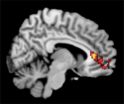(Press-News.org) A new diagnostic technique -- resulting from monitoring thousands of courtship calls from songbirds -- can be used to safely map the human brain during complex neurosurgery, according to research from Neuroscientists at NYU Langone Medical Center and elsewhere.
The mapping process, first tested in zebra finches, involves gently placing a miniature electrical cooling device at different locations on a small region of the songbirds' brains. This slows down processing of complex neural behaviors, such as a birdsong or human speech.
In a report prepared for the Society for Neuroscience annual meeting in Washington, D.C., on Nov. 18, the NYU Langone researchers and their colleagues at the University of Iowa describe how such "focal intraoperative cooling," first studied in the songbirds, was then safely applied in 18 volunteer participants undergoing brain surgery.
According to lead study investigator Michael Long, PhD, an assistant professor at NYU Langone, the standard practice is to keep many patients -- particularly those suffering from epilepsy and brain cancer -- awake and talking while surgeons directly apply brief electrical currents to the patient's brain surface to mark any regions that, when shocked, impede normal speech.
Moreover for those with epilepsy, says Long, such electrical probes have been known to trigger seizures, adding risk to surgery.
"Our study results show that focal intraoperative cooling is a safe and effective means of mapping complex neural behaviors in the human brain, especially speech, and could be used as an alternative to current practices," says Long. "Our research also offers insight into how complex neural behaviors are produced, demonstrating that changes in speech are specific to particular regions of the brain."
As part of the research, study volunteers already scheduled for brain surgery underwent focal intraoperative cooling sessions that lasted about 20 minutes. This allowed researchers time to map the function of a half-dozen brain regions. To map each section, patients recited word lists, such as the days of the week, while researchers analyzed the structure and timing of the speech for such things as slurring and speed.
Results showed that the cooling sessions lowered regional brain temperatures by roughly 10 degrees Celsius, enabling researchers to track speech control to mostly the brain's left hemisphere, and slowing speech some 30 percent. Patients initially took four seconds to recite the weekday list, but needed longer than five seconds after cooling certain key regions of the brain.
Speech quality also varied when other brain areas were chilled, with patients mixing up the weekday order or slurring their pronunciation after cooling.
Long and his research team plan to expand their work to map more language-critical sites in the brain.
INFORMATION:
Funding support for the study was provided primarily by the US National Institute of Neurological Disorders and Stroke, part of the National Institutes of Health, grant R01 NS075044. Additional funding support was provided by the New York Stem Cell Foundation.
Besides Long, other NYU Langone researchers involved in this study were Kalman Katlowitz, BEng; R.C. Clary, BS; Mario Svirsky, PhD. Other study co-investigators were D. R. Hansen, MD; Matthew Howard, MD; and Jeremy Greenlee, MD, at the University of Iowa Health Center in Iowa City.
For more information, go to:
http://longlab.med.nyu.edu/
http://www.sfn.org/annual-meeting/neuroscience-2014
DURHAM, N.C. -- Holiday shopping can be mentally exhausting for anyone. But a new Duke University study finds that older adults seem to need extra brainpower to make shopping decisions -- especially ones that rely on memory.
The study appearing Nov. 19 in the Journal of Neuroscience suggests that older shoppers use an additional brain area to remember competing consumer products and choose the better one.
"The study gives a bright picture, actually," said lead author Nichole Lighthall, a postdoctoral researcher in Roberto Cabeza's lab at Duke's Center for Cognitive ...
LA JOLLA, CA--November 18, 2014--"Protein misfolding" diseases such as cystic fibrosis and Alzheimer's may be seriously exacerbated by the body's own response against that misfolding, according to a new study led by scientists at The Scripps Research Institute (TSRI).
The researchers examined patient cells and animal models of several diseases that feature chronic protein misfolding and found that in each case, a cellular defense system against protein misfolding, called the "heat shock response," was overactive. Reducing its activity lessened the signs of disease and ...
Sleep is a critical period for memory consolidation, and most people don't get enough. Research has shown that even brief periods of sleep deprivation can lead to deficits in memory formation.
In a new study, published in the Journal of Neuroscience, a team led by scientists from the University of Pennsylvania found that a particular set of cells in a small region of the brain are responsible for memory problems after sleep loss. By selectively increasing levels of a signaling molecule in these cells, the researchers prevented mice from having memory deficits.
Robbert ...
LOS ANGELES (STRICTLY EMBARGOED UNTIL 5 P.M. EST on NOV. 11, 2014) - Lou Gehrig's disease, also known as amyotrophic lateral sclerosis, or ALS, might damage muscle-controlling nerve cells in the brain earlier in the disease process than previously known, according to research from the Cedars-Sinai Board of Governors Regenerative Medicine Institute. The findings, published in the Nov. 12 Journal of Neuroscience, could shift researchers' attention from the spinal cord to the brain's motor cortex as the disease's initial point of dysfunction.
"In this study, we show the ...
Home exercise can ease feelings of hopelessness in people with coronary heart disease, according to a small study presented at the American Heart Association's Scientific Sessions 2014.
Feeling hopeless can be dangerous because it can discourage people from taking healthful steps such as exercising or quitting smoking, said Susan L. Dunn, Ph.D., R.N., lead author of the study and a professor of nursing at Hope College in Holland, Michigan.
People with hopelessness may also suffer from depression, which is marked by a loss of interest in activities they normally enjoy.
"For ...
A new trans-satellite wireless 12-lead ECG can identify the most severe type of heart attack swiftly and save significant time from ambulance to angioplasty, according to research presented at the American Heart Association's Scientific Sessions 2014.
An ECG measures the electrical activity of the heart and helps medical personnel determine if a person had an ST-elevation myocardial infarction (STEMI). Angioplasty, also known as percutaneous coronary intervention (PCI), is a procedure in which an inflatable balloon opens a blocked artery to restore blood flow to the heart.
During ...
In a small study in Japan, people who stopped smoking didn't face increased death risk if they gained weight, according to research presented at the American Heart Association's Scientific Sessions 2014.
"Quitters had a significantly lower risk of death compared to smokers regardless of their weight change after they stopped smoking," said Hisako Tsuji, M.D., lead author of the study.
Researchers compared deaths from all causes in 1,305 Japanese adults who quit smoking to deaths among 2,803 Japanese smokers. Participants in both groups were 65 percent men, average age ...
Using a smart phone app for education and feedback about heart-healthy behavior may decrease the risk for heart and blood vessel disease among young black women, researchers said in a pilot feasibility study presented at the American Heart Association's Scientific Sessions 2014.
"We need to raise awareness among women and their healthcare providers of gender and racial differences in cardiovascular disease," said Jo-Ann Eastwood, Ph.D., study lead author and associate professor at the University of California, Los Angeles School of Nursing. "Women are social by nature, ...
Adults counseled on their genetic risk of coronary heart disease believe they have more control over their fate, according to research presented at the American Heart Association's Scientific Sessions 2014.
Researchers examined the impact of disclosing risk of 10-year heart disease with or without genetic risk information to 207 patients (48 percent male, average age 58) participating in Myocardial Infarction GENES (MI-GENES), a randomized controlled study.
The study's key elements included a risk score based on established risk factors and a genetic risk score based ...
A heart-healthy diet is related to decreased blood pressure measurements, researchers said in a study presented at the American Heart Association's Scientific Sessions 2014.
Elevated blood pressure is a major risk factor for the development of heart and blood vessel disease. It is known that following U.S. dietary guidelines can decrease the risk for heart and blood vessel disease, their effects on specific blood pressure measurements were unclear. In this study, researchers found that blood pressure measurements were higher among study participants who did not follow ...


